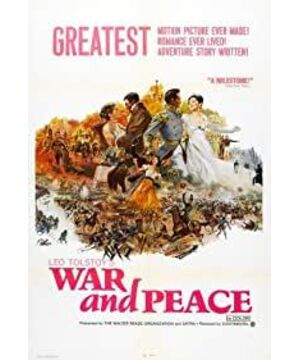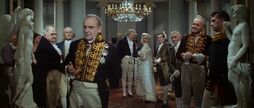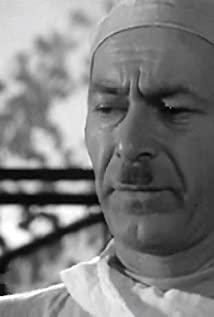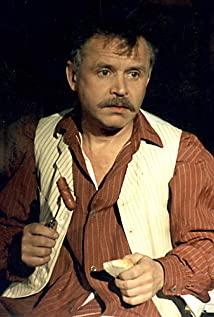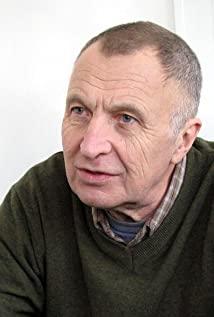war and peace are the themes that human beings have been discussing. Do you want war or peace?
Some people say that war is necessary, because only the history of war can advance, and war is inevitable.
I admit that war can indeed bring benefits to mankind, that is, war has a certain constructiveness. But it also has its undeniable huge destructiveness. Let alone how many people will be sacrificed and how many families will be destroyed in a war, the loss of civilization created by humans is incalculable! If the advancement of history is based on the destruction of previous civilizations, I would rather not advance!
Some people say that war is inevitable. Why not say that war is avoidable? Whether it can be avoided depends only on people's beliefs, or what kind of bottom line you have. When encountering international disputes, if you hold the attitude of resorting to force if it fails, I think the last 80% war is inevitable.
What does it mean to be really bad? What is a last resort? All excuses! A very subjective thing turned out to be a yardstick for judging whether to start a war. It was too terrible and too sad. If all countries in the world have such a belief that they want peace and always resist war, I think there will be fewer unnecessary conflicts. Some people say that it is impossible, this idea is too utopian. But I think no matter whether it can be realized or not, it is good to have this belief. Eternal peace is possible. Everyone has faith, so the battle will not start. Just like morality and law, not absolute can make people restrain themselves, but they cannot be ignored and irreplaceable.
When Napoleon led an army to invade Moscow City, he found that what the Russian army had left them was an "empty city" without a single soldier. They just shot the arsonists, but didn't kill the innocent indiscriminately. Seeing this, I think of the Nanjing Massacre. After the Japanese soldiers arrived in Nanjing, they slaughtered the unarmed Chinese people in the city, raped and looted them, and massacred 300,000 of my compatriots. The crimes were horrendous and untold. The two are in sharp contrast.
War is a competition that destroys lives. War means sacrifice and death. It is inhumane to deprive others of the right to survive for a so-called "last resort". Of course this does not mean that we are indifferent when others violate us. It just means that we don't take the initiative to provoke a war, but when the war really comes, we are not afraid and swear to defend the ancestral park.
The war is terrible. Any violence should be prohibited.
The best guarantee for mankind and human civilization is to live in peace. If a country knows what revenge is, it must be a rude person. Some people have fought for several generations. If they kill each other today for the theft of livestock a hundred years ago, what chance do you have for survival?
We must respect the law, but the most important thing is to respect the people. Respect for the people is not about how many protection laws have been promulgated and how many convenient facilities have been built, but a kind of survival guarantee for people, that is, providing a peaceful environment, rather than being stuck in the quagmire of war all day long.
Tolstoy almost completely denied Napoleon, not only that, he also denied Tsar Alexander, and even questioned the war in a thought-provoking manner. In plain language, Tolstoy believed that Napoleon was a neuropathy with extraordinary talents, and Alexander was a neuropathy with mediocre aptitude. God arranged two neuropathies to lead a group of lunatics to fight for life and death. Of course, the loser is shameful, and the winner is also No glory. Tolstoy pays more attention to everyone and every family in the war. What does the so-called justice in the war mean to them? Just like what the film said: "Whether it is politically close to Napoleon or alienated, people still live and have nothing to do."
War and people
"Why men can't live without war, but women don't like it?" This is the film A sentence in.
Why can't men live without war? For the so-called honor, in order to satisfy the inherent desire to conquer. Men are eager to conquer the world, especially ambitious men. They feel that war can give them a place to use their abilities to realize their self-worth.
Why don't women like it? Because a woman's world is a family. A man may sacrifice everything to gain the world, but a woman will not leave the family in order to win everything, because they know that the family is her world, and cannot win everything and lose the “world”.
The word "home" is written in oracle bone inscriptions. There is a woman sitting in a room and the woman holding a child. This shows what? It shows that there must be women and children at home. But war does not matter to a family or to the people. What it really brings to them is the dispersal of wives, and families no longer exist.
War can bring some progress, but it cannot be said that historical progress only needs to be promoted by war. Not to mention war as a means to advance history. Imagine, if wars are launched frequently, what will be the most direct result? There is no doubt that the population has decreased significantly. Let me ask: Life is no longer there, so what can you say about enjoying the progress brought about by war? !
Not to mention this. The sharp decline in population means the lack of labor, and the economic losses caused by wars have caused changes in production relations, resulting in a decline in productivity. War will also bring environmental and ecological problems, plagues, famines and so on. My
attitude towards art and culture
was shocked by the Soviet version of "War and Peace". After watching the American version of the movie, it didn't feel so good. The Soviet version is only imposing, and the magnificent scene is unparalleled. I even dare to say that this is unprecedented. When the Soviet Union filmed this film, there were 120,000 extras alone, and each soldier had his own uniform and weapon. This allows us to see the demeanor of a big country and the attitude of Russia as a nation towards history, culture and art.
This reminds me of the first edition of "A Dream of Red Mansions" in China. At that time, this TV series was filmed for more than 3 years. Before filming, I also invited Zhou Ruchang and other red scholars to give lectures, study, and train actors in various aspects. In today's day when commercialization is increasingly rampant, it only takes a few months to shoot masterpieces and even distort the original works wantonly. In order to attract the audience's attention, do not hesitate to thunder to the end! The whole society is full of impetuous atmosphere. Recently, the 6 European countries re-co-produced the classic "War and Peace". Although the props and production are more advanced than the original, it has no longer the original momentum, and more uses high-tech, without 120,000. Spectacle of people. So I just said it was unprecedented. Maybe I am too old-fashioned.
About life and love
The most difficult thing but an essential one is to love Life, to love it even while one suffers, because Life is all, Life is God, and to love Life means to love God this is the last caption American version of the film ~ And there is such a sentence in the Soviet version of the film: To live, to love others. Life is inherently bright and joyful. In the novel, we see Tolstoy’s reflection on the deepest spiritual nature. His unwavering belief firmly leads people to happiness and harmony. If people don’t obey the call of life , Then he himself is guilty.
I see
Kutuzov on individual characters : self-confidence. Knowing that there is something more powerful than human calculations and will, which is the inevitable law of the development of things. Understand that "Haste is not achieved". Knowing patience takes time to wait. The scene in the film when Kutuzov heard Napoleon withdraw from Moscow impressed me.
Napoleon: ambition, arrogance, pride, roughness. Treat one's own will as the will of a soldier, take one's own glory too high, and look for high-sounding excuses for this.
Old Duke Paulkansky: I think he is a man who is cold, stubborn and tender. The perseverance we showed when we parted with our son showed us a tender heart beneath the surface of stubbornness. And the scene before his death reminded me of Lu You, who was also worried about the fate of the country and felt helpless, and reminded me of the famous poem: "I know everything is empty here, but I will not see the same in Kyushu. Forget to tell Natasha." (Lu You "Shier") There is a scene in the
love and growth
film. When Andre realized that he was going to marry Natasha, his passion disappeared and his sense of mystery was gone, only what remained. Feelings of disbelief. And Natasha also realized that "this stranger will become everything to me..." Everything came too quickly.
Andrei's feelings for Natasha are a bit like Wrensky's feelings for Anna. It's just that Andre is more sensible. "It is important to spend a year to understand yourself." A year's time is not short or long. But for both men and women in love, it is both torture and test. Although it may seem cruel, it will not be blind, and you can have a better attitude towards each other. With true love, I believe that distance in time and space is not a problem. Like a sentence in the "Bible": "Love, the waters cannot be extinguished, nor can the floods be submerged." "Love is as strong as death... The light emitted is the light of flame..." (Song of Songs)
Natasha's affection for Andrei was at the beginning, just like Anna's feeling for Volensky. Natasha was shaken during the year, so I often wondered if Anna and Wolensky were given one year, then what would happen to Anna one year later? I think Anna will not be like Natasha. Because Anna's married life was originally unhappy, she would fight against the fire like moths when she met Wolensky, desperate for herself. And Natasha is such a simple girl who hasn't grown up, it's inevitable to be seduced when she is the loneliest. After going through everything, when Pierre saw her again, no one could tell it was hers. The lively little girl when she first came out became calmer and quieter. The growth of a woman requires such a process of transformation, although it is painful.
For Andre, he has also grown up after the war and the death of his wife. He discovered that this war is not about honor, but about the balance of rights and interests between countries; the nobility of war surrendered to diplomatic relations, this relationship is a vanity fair; he found that there is a feeling in this world that is pain, what is it like? Occupation and glory are stronger and more covering. Before the pain and death, his honor and humiliation suddenly became insignificant, and his love and hatred became unimportant.
Pierre changed from his original admiration of Napoleon to an assassination of him. Of course, this was only the appearance, and more importantly, there was a change in his thoughts. Life is great, ever-changing, never-ending, incredible. The important thing is to pursue happiness. To pursue truth, goodness and beauty, mankind must seek happiness together.
Andre: Honor is supreme. "Never get married, when you haven't finished what you should do. Marriage will wipe out the good and noble things in your heart." Transformation: live for yourself;
talk about war between life and death
Tolstoy believes that war is against human reason. The war of nature. But I think war is against reason, but it is human nature. But this does not conflict with the avoidability of war.
War is irrational, it is just the unconscious behavior of one or more people. Therefore, it runs counter to truth, goodness and beauty and goes against the spirit of humanitarianism. It should be resisted. This is why the French soldiers helped when Pierre rescued the little girl, and why the Russian officers gave the captured French drummer something to eat. At this time, there is no "enemy" or "me", only "love". "Love is the greatest thing in the world, only it can eliminate hatred, and only it can conquer interpretation" (Rockefeller). What's more, there is no hatred among the people, but brave acts generated by orders, meaningless atrocities, and all heinous nonsense in the name of patriotism.
Happiness really needs humans to seek together. And the foundation of all this is peace.
View more about War and Peace reviews


